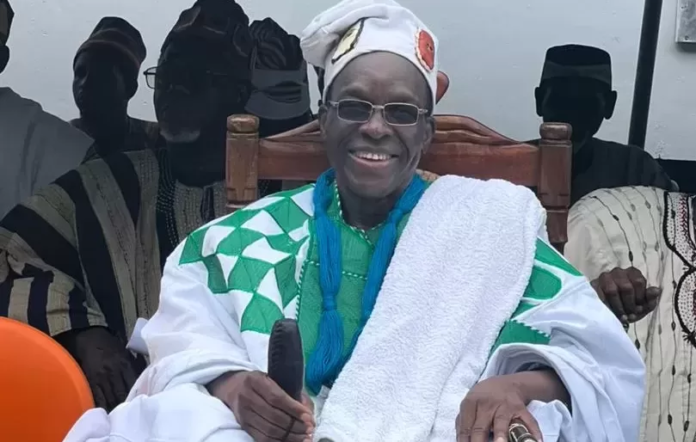The Akan of Ghana reserves a kind word for the deer.
You may dislike that animal, for all its sins, but you can’t take away its fame for speed.
Alban Sumana Kingsford Bagbin may not be your favourite Speaker of all time: a ruling or comment from his Speaker’s Chair or his very politics may have put him down in your estimation as the worst Speaker of all time, but you cannot take away his heart for the masses.
At the weekend, he spoke for the economically disadvantaged class when, as Speaker of Parliament (himself an Article 71 Office Holder), he advocated the abolition of ex gratia as part of retirement emoluments for that special breed of citizens.
Someone said once that in Africa, the fastest way to wealth is through politics. To determine the truth or otherwise of these two observations, ask yourself what it is about politics in Ghana that breeds the following emolument differentials:
The average Single Spine worker earns GH¢1,239, while the Article 71 Office Holder takes GH¢18,211; while the highest paid Single Spine worker earns GH¢4,324, the least paid Article 71 office holder earns GH¢11,661.
Even in Ghana’s state of extreme hardship, the country coughs a total of GH¢20 million every four years to this super-privileged handful, not because they work harder than the doctor, nurse or teacher but simply because they happen to fall into a category of a carefully worked out political scheme of things.
JoyNews has revealed that as of 2016, the total number of people on the payroll of Article 71 office holders was around 500. Who are these super-privileged few?
Our beloved 1992 Constitution lists them as the Speaker and Deputy Speakers and Members of Parliament; the Chief Justice and other Justices of the Superior Court of Judicature; the Auditor-General, the Chairmen and Deputy Chairmen of the Electoral Commission, the Commissioner for Human Rights and Administrative Justice and his Deputies, and the District Assembly Common Fund Administrator; the Chairmen, Vice Chairmen and other members of the National Council for Higher Education, the Public Services Commission, the National Media Commission, the Lands Commission and the National Commission for Civic Education.
Completing this list are the President, the Vice-President, the Chairman and the other members of the Council of State, Ministers of State and Deputy Ministers.
Ex gratia
The word ex gratia itself is not expressly mentioned in the Constitution, but Article 71 provides that the terms and conditions of such officers shall be determined based on the recommendation of the Presidential Committee on Emoluments and Determination of Emoluments.
In a “scratch my back-I scratch your back” scenario, the committee’s recommendations for the emoluments of Members of Parliament and other officers in Article 71 are approved by the President, while the Legislature does the same for the President, Vice-President, Chairman and Members of the Council of State, Ministers of State and Deputy Ministers.
By this provision, it has been possible for the ailing economy of Ghana to dish out juicy packages to these privileged few over the years. Indeed, in 2020 alone, a total of over GH¢ 207,845,512 was paid as ex gratia to Article 71 office holders who had served the State since 2016.
It’s not as if we had pots or barrels of money for this frivolity. To qualify for IMF’s 17th bail-out to Ghana, the current government, unable to meet its debt obligations, had to announce a Domestic Debt Exchange Programme (DDEP).
That is why this Article 71 business is so obscene. The question someone has asked is if ex gratia is a thank-you to persons who have rendered satisfactory service to their employer, what extraordinary services have been rendered by Parliament and the Executive class since 1992 to warrant ex gratia payment?
Is it for engaging in fisticuffs over the approval of the E-Levy? Is it for the abysmal inability to save Ghana from the clutches of galamseyers?
Campaign
Against this backdrop, the campaign against the continued payment of ex gratia intensified so loud that President Akufo-Addo heard it. The numerous quarters from which these protests emanated were such that he could not but act in a way as to be seen to care.
On August 30, 2023, when he swore in the latest emoluments committee packages, he charged the committee to consider if Article 71 office holders in Ghana are deserving of monies paid to them as stipulated by the 1992 Constitution. The committee will submit a report at the end of July 2024.
Of the committee members, I can guarantee that Gloria Ofori Boadu will speak for the poor. I haven’t said that the rest cannot or will not. I don’t know them but I know Gloria Ofori Boadu. She combines competence and super-efficiency with a good heart.
I foresee hurdles. To scrap or revise Article 71 would require a national referendum!
The writer is Executive Director,
Centre for Communication and Culture.
E-mail: ashonenimil@gmail.com

